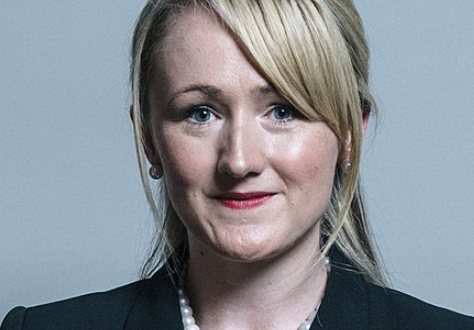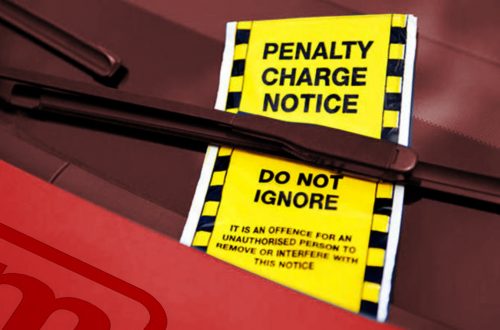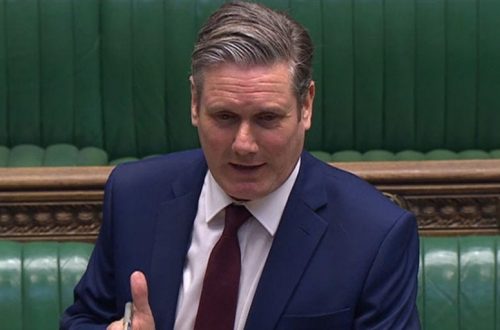Ed Miliband has named Alan Johnson as shadow chancellor and in doing so he has confounded the pundits who were tipping Yvette Cooper for the job.
She isn’t going to be unhappy. Cooper has picked up a big job for herself having been named shadow foreign secretary, according to the BBC.
Miliband has given Ed Balls, his leadership rival and fellow Brownite, a senior role as the new shadow home secretary. The Guardian reports Balls saying he was “surprised” to have been handed the role of Labour’s home affairs spokesman. I bet he was.
It is a brave choice in naming Johnson as shadow chancellor and does signal that Miliband’s desire to create a united Labour party under his leadership is a sincere one. During the leadership election Johnson, the former home secretary, was a high profile backer of David Miliband and said: “I think David is head and shoulders above the other candidate.”
To then elevate Johnson to shadow chancellor is impressive as it wasn’t the easy or obvious thing for him to do. Hats off.
The BBC reports Miliband saying the line-up is “drawn from a broad range of talents” across the party.
“My team is united in one central mission for the future – to win back the trust of the British people and take Labour back to power. Together, this new generation of Labour will work together to reject the pessimism of this coalition government as we set out our vision of what Britain can achieve. Our values are those of the British people, and this shadow cabinet will ensure that the hopes and concerns of working families are at the heart of our offer to the country.”
Over on The Guardian Martin Kettle is arguing Johnson is the right choice and has given ten reasons why. Ed Miliband supporter Jenni Russell says its a huge mistake and then waxes about the “brilliant” Ed Balls.
Among the reasons that Kettle argues Johnson is the right man for the job, other than Ed Miliband can absolutely trust him, is this:
“it shows that Miliband rightly wants to lead from the front and not sublet economic policy to the shadow chancellor as Tony Blair did; the key public spending shadow team will now be Miliband, Johnson and the new work and pensions shadow, Douglas Alexander, a well-balanced group.”
He also makes the point that, rightly or wrongly, Cooper, would partly be seen as a surrogate for Balls. His point about wanting to escape the legacy of Brown and ensure that the new shadow Treasury team is not Team Gordon Brown 2.0 is also persuasive.
The shadow cabinet list in full:
Leader of the Opposition: Ed Miliband
Deputy Leader and Shadow Secretary of State for International Development: Harriet Harman
Shadow Chancellor: Alan Johnson
Shadow Foreign Secretary and Minister for Women and Equalities: Yvette Cooper
Shadow Home Secretary: Ed Balls
Chief Whip: Rosie Winterton
Shadow Education Secretary: Andy Burnham
Shadow Lord Chancellor and Justice Secretary (with responsibility for political and constitutional reform): Sadiq Khan
Shadow Work and Pensions Secretary: Douglas Alexander
Shadow Business Secretary: John Denham
Shadow Health Secretary: John Healey
Shadow Secretary Communities and Local Government Secretary: Caroline Flint
Shadow Defence Secretary: Jim Murphy
Shadow Energy and Climate Change Secretary: Meg Hillier
Shadow Commons Leader: Hilary Benn
Shadow Transport Secretary: Maria Eagle
Shadow Environment, Food and Rural Affairs Secretary: Mary Creagh
Shadow Chief Secretary to the Treasury: Angela Eagle
Shadow Northern Ireland Secretary: Shaun Woodward
Shadow Secretary of State for Scotland: Ann McKechin
Shadow Welsh Secretary: Peter Hain
Shadow Culture, Media and Sport Secretary: Ivan Lewis
Shadow Lords Leader: Baroness Royall of Blaisdon
Shadow Olympics Minister: Tessa Jowell
Shadow Cabinet Office Minister: Liam Byrne
Lords Chief Whip Lord Bassam of Brighton
Shadow Attorney-General Baroness Scotland


